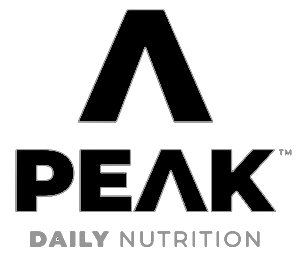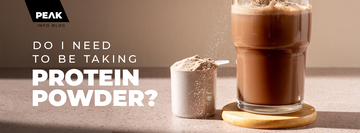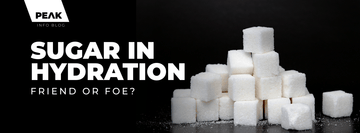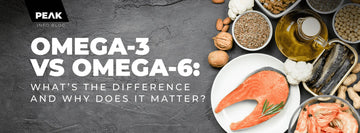Protein supports various bodily functions, including hormone and enzyme production, immune function, and satiety. It is also one of the most satiating macronutrients, helping to keep hunger at bay and aiding in weight management. In today’s health-conscious society, protein has become a major focus for individuals looking to support muscle growth, recovery and overall well-being. But do we really need protein powder to meet our daily needs, or can we get enough from whole foods?
Why do we need protein for muscle maintenance and repair?
When we exercise, we create tiny micro-tears in our muscles, and protein plays a key role in repairing these tears, allowing muscles to rebuild and grow stronger. Without sufficient protein, muscle recovery is compromised, and muscle growth becomes less effective. If your goal is muscle maintenance or muscle gain, pairing your exercise routine with sufficient protein intake is essential. However, consuming excessive amounts of protein without regular exercise (in particular, resistance training) may not lead to additional muscle gain and can contribute to unnecessary and excessive calorie intake.
Can I get enough protein from whole foods?
Whole food sources of protein include meat, poultry, fish, eggs, dairy, legumes, nuts, seeds, and certain grains. A well-balanced diet that includes a variety of these foods can generally provide sufficient protein for most individuals. However, in today’s fast-paced world, there is an increasing demand for convenient alternatives like protein powders and supplements. For those with busy lifestyles, preparing and consuming enough protein-rich meals can be challenging, making a high-quality protein shake, such as the PEAK Protein Shake, a practical and efficient solution to help meet daily protein needs. Additionally, athletes and individuals engaged in high-intensity exercise often have higher protein requirements to support muscle recovery and performance, and a protein shake can assist in meeting these high protein requirements. Similarly, plant-based eaters may struggle to obtain adequate protein, especially when aiming for a complete amino acid profile, making plant-based protein powders a valuable option to help fill in the nutritional gaps.
How do I choose a suitable protein powder?
When selecting a protein powder, several key factors should be considered. The first is the type and source of protein used in the protein powder. PEAK uses a blend of faba bean and pea protein isolate in its shake, making it a high-quality AND plant-based-friendly option. Another important factor to consider when choosing a protein powder is the amino acid profile. Protein powders that contain all or most of the essential amino acids are considered higher in quality compared to those that do not. PEAK Protein does contains 20g of protein, this is equivalent to more than 3 eggs/ 1 cup of legumes/ 90g of meat,
The overall nutrient composition of the protein powder is also crucial. Some supplements, including the PEAK Protein Shake, provide added vitamins, minerals, fibre, and omega-3s to support overall health. PEAK incorporates a specialized micronutrient blend to enhance the nutritional value of its shakes. Lastly, it is important to consider artificial additives and sweeteners when choosing a protein powder. Opt for options with minimal artificial ingredients for a cleaner, more natural product.
Protein powders are not a necessity for everyone, but they can be a convenient and effective way to meet protein needs, especially for individuals with higher requirements or those who struggle to consume enough protein through whole foods. If you choose to use a protein powder, select one that aligns with your dietary preferences, fitness goals, and ingredient quality standards.













